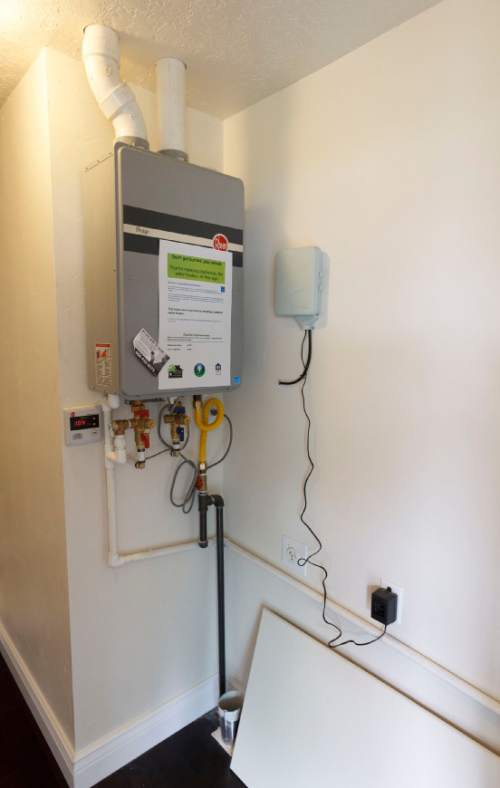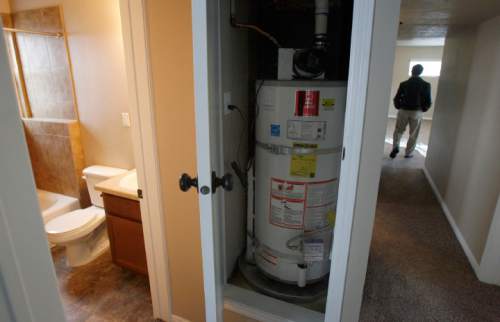This is an archived article that was published on sltrib.com in 2015, and information in the article may be outdated. It is provided only for personal research purposes and may not be reprinted.
Utah residents who plan to upgrade their home water heater after Nov. 1, 2017, will pay slightly more — but they'll also help cut one source of wintertime pollution.
A rule passed by the Utah Air Quality Board on Wednesday will prevent the sale or installation of residential hot water heaters that do not qualify as ultra-low nitrogen oxide (NOx) emitters after that date, which was set to accommodate industry concerns.
The move is projected to reduce area-source emissions of NOx by 35 percent by 2024, said Joel Karmazyn, an environmental scientist with the Utah Division of Air Quality (DAQ).
"That's a huge reduction," Karmazyn said.
Water heaters are a significant source of NOx emissions from area sources, said Karmazyn, who specializes in writing regulations for such polluters. Area sources are large emitters as a class, but not individually, and have fixed locations. Homes and businesses are area sources, and vehicles are not.
NOx, along with volatile organic compounds, is known to be one of the main components of the chemical soup that creates Utah's wintertime particulate, or PM 2.5, problem. It may also contribute to ozone formation, Karmazyn said.
The new rule will not require anyone to remove or replace their current water heater, Karmazyn said, but it may limit the options available to them the next time they need a replacement.
The rule passed with little opposition. Questar Gas, in its comments, asked the board to delay the start date of the ban to give the company more time to test how the gas it delivers to Utah customers will perform in the ultra-low NOx water heaters. The quality of natural gas delivered to Utah residents varies across the state, Karmazyn said, and the ultra-low water heaters have not been tested for use with different grades of gas.
The board granted the request at the recommendation of DAQ staff, pushing state-wide implementation back two years.
Karmazyn said he thinks the impact to residents will be slight. Before passing the rule, he said, DAQ conducted a survey of 100 water heater models currently on the market. Of those, 36 met the ultra-low standard. The difference in price, Karmazyn said, was an average increase of $10.
Karmazyn said he doubts whether any of the water heaters currently operating in the state would meet the criteria.
He said he recently installed a new, top-rate water heater in his own home, and it produces 40 percent more NOx emissions than will be allowed under the ultra-low rule.
Matt Pacenza, executive director of HEAL Utah, praised the rule as a "modest but important step in the right direction." He said all Utahns who care about clean air should support the rule.
"We would argue that this is exactly the sort of public policy we need to embrace," he said. "We embrace standards that will slowly make our homes and buildings as clean as possible."
Twitter: @EmmaPen





